
- Home
- India
- World
- Premium
- THE FEDERAL SPECIAL
- Analysis
- States
- Perspective
- Videos
- Sports
- Education
- Entertainment
- Elections
- Features
- Health
- Business
- Series
- In memoriam: Sheikh Mujibur Rahman
- Bishnoi's Men
- NEET TANGLE
- Economy Series
- Earth Day
- Kashmir’s Frozen Turbulence
- India@75
- The legend of Ramjanmabhoomi
- Liberalisation@30
- How to tame a dragon
- Celebrating biodiversity
- Farm Matters
- 50 days of solitude
- Bringing Migrants Home
- Budget 2020
- Jharkhand Votes
- The Federal Investigates
- The Federal Impact
- Vanishing Sand
- Gandhi @ 150
- Andhra Today
- Field report
- Operation Gulmarg
- Pandemic @1 Mn in India
- The Federal Year-End
- The Zero Year
- Science
- Brand studio
- Newsletter
- Elections 2024
- Events
In Photos | Vel Vel festival: When Tamil Nadu and Bengal come together to treat ailments

A middle-aged man from Tamil Nadu came to West Bengal for livelihood in the late sixties little knowing one day he will be instrumental in creating a unique cultural fusion, enriching the state’s rainbow culture.Bandel, founded by Portuguese settlers on the bank of the Hooghly river, was a bustling industrial town drawing job-seekers from across the country those days.A man walks on hot...
A middle-aged man from Tamil Nadu came to West Bengal for livelihood in the late sixties little knowing one day he will be instrumental in creating a unique cultural fusion, enriching the state’s rainbow culture.
Bandel, founded by Portuguese settlers on the bank of the Hooghly river, was a bustling industrial town drawing job-seekers from across the country those days.
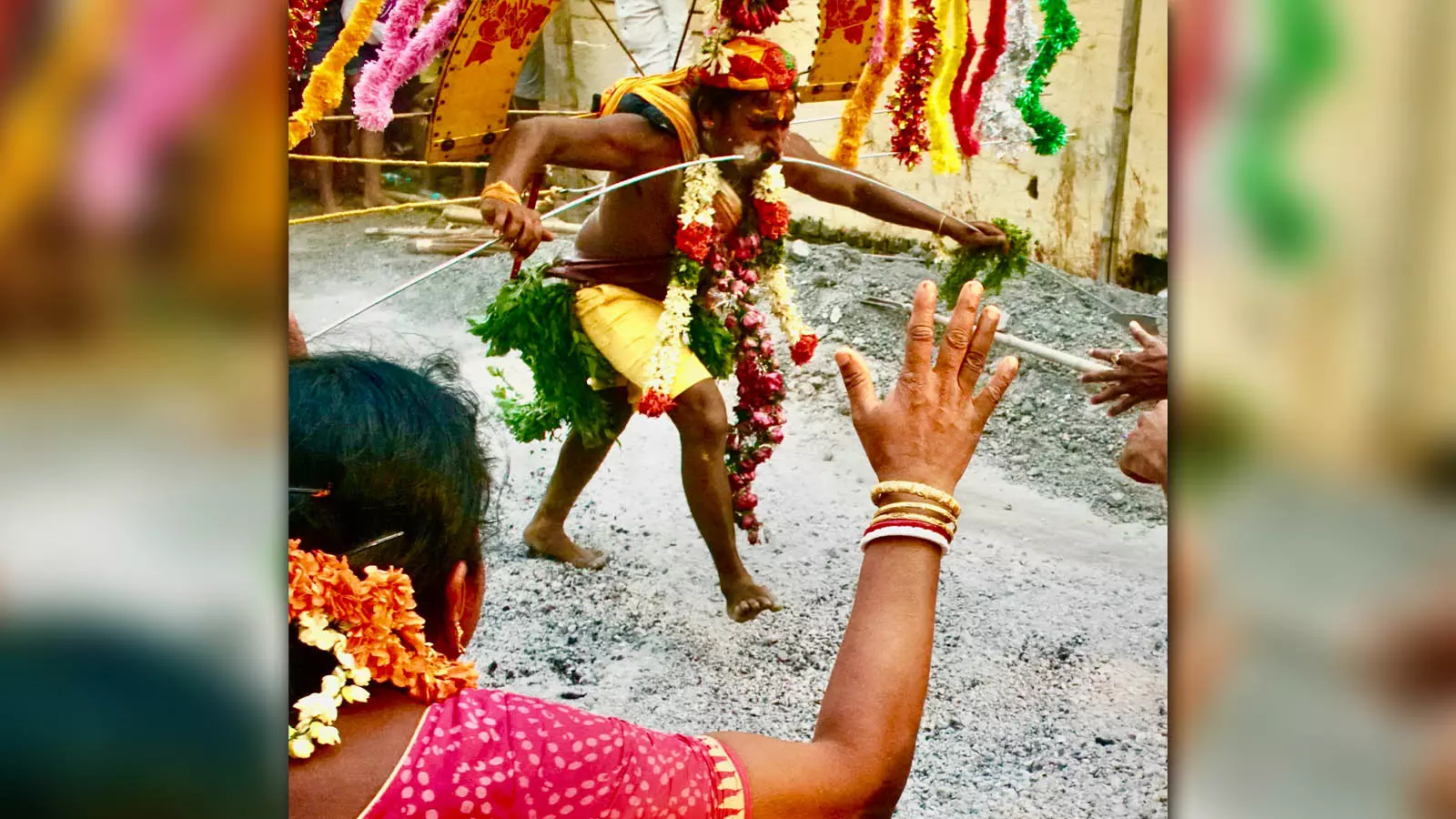
A man walks on hot coal during the Vel vel festival.
One in the crowd was P Rathinam from Tamil Nadu’s Sivaganga. He opened a road-side eatery selling South-Indian delicacies such as idli and dosa. It became an instant hit among local jute mill workers, whose taste buds were not exposed to the new variants.
Rathinam soon became popular in the area for another reason — his magical cure.
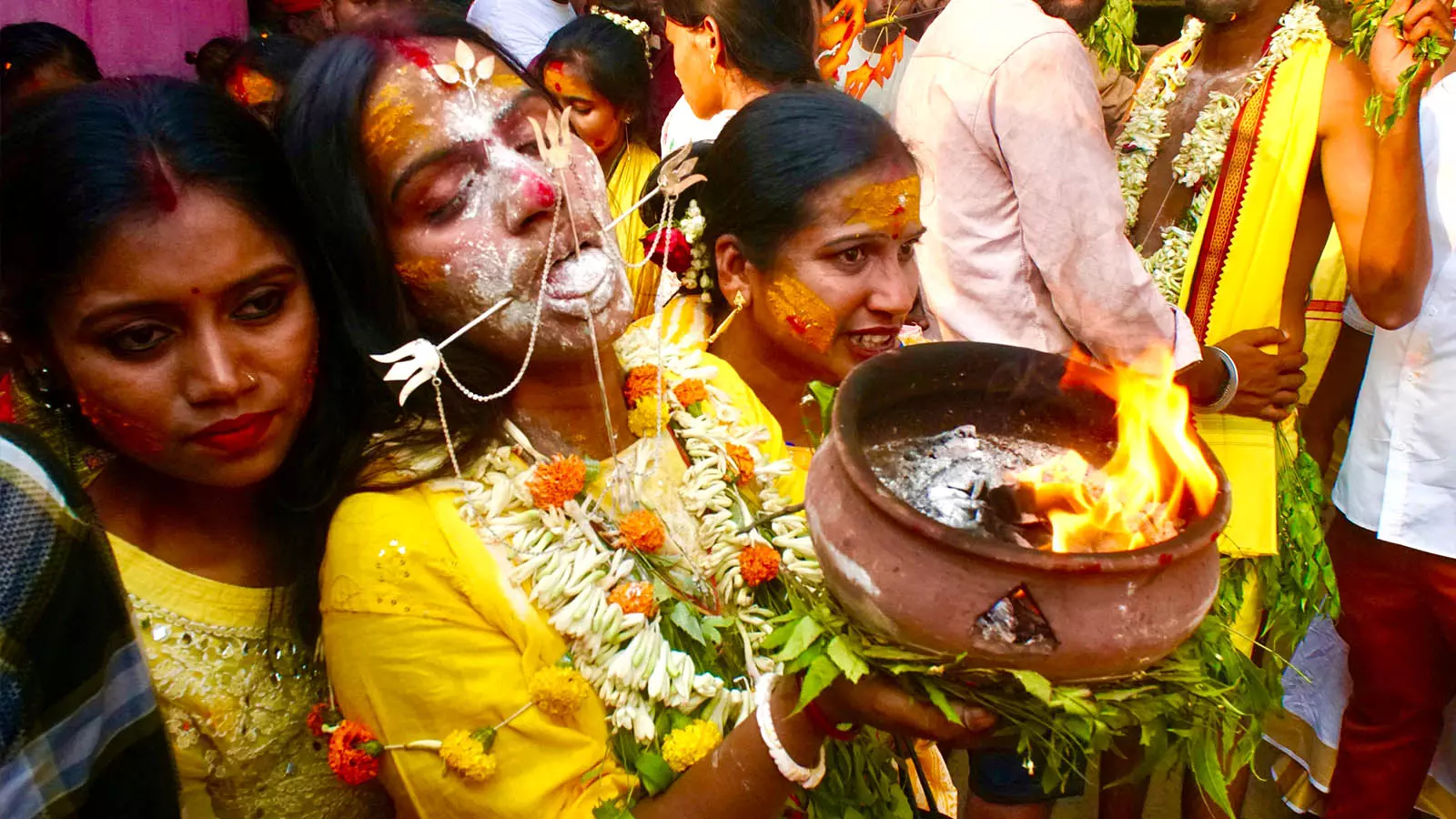
The presiding deity of the Thayamangalam temple, Muthumari Amman, is believed to be a deliverer of trouble.
Those days, outbreak of chickenpox between March and June was very common in Bandel as in other parts of Gangetic West Bengal.
The local legend has it that to treat the ailment, Rathinam had a talismanic dust.
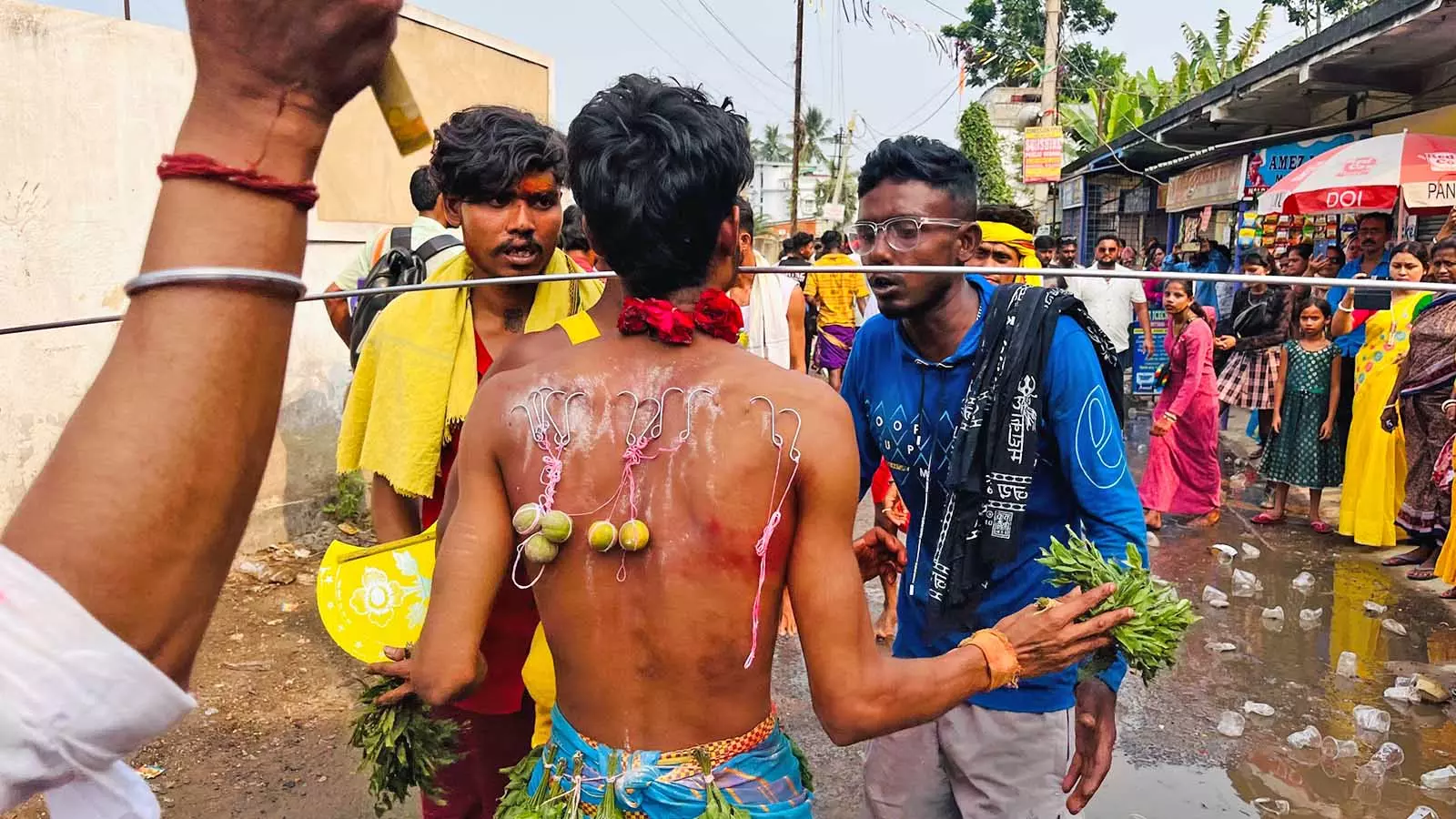
In Bengal, Sheetala Mata is believed to cure chicken pox.
“My father brought soil from Thayamangalam temple (in Tamil Nadu’s Sivaganga district) and applied it on those who got pox. People got cured by the grace of god,” said Ganesh, youngest son of late Rathinam.
The presiding deity of the temple Muthumari Amman is believed to be a deliverer of trouble.
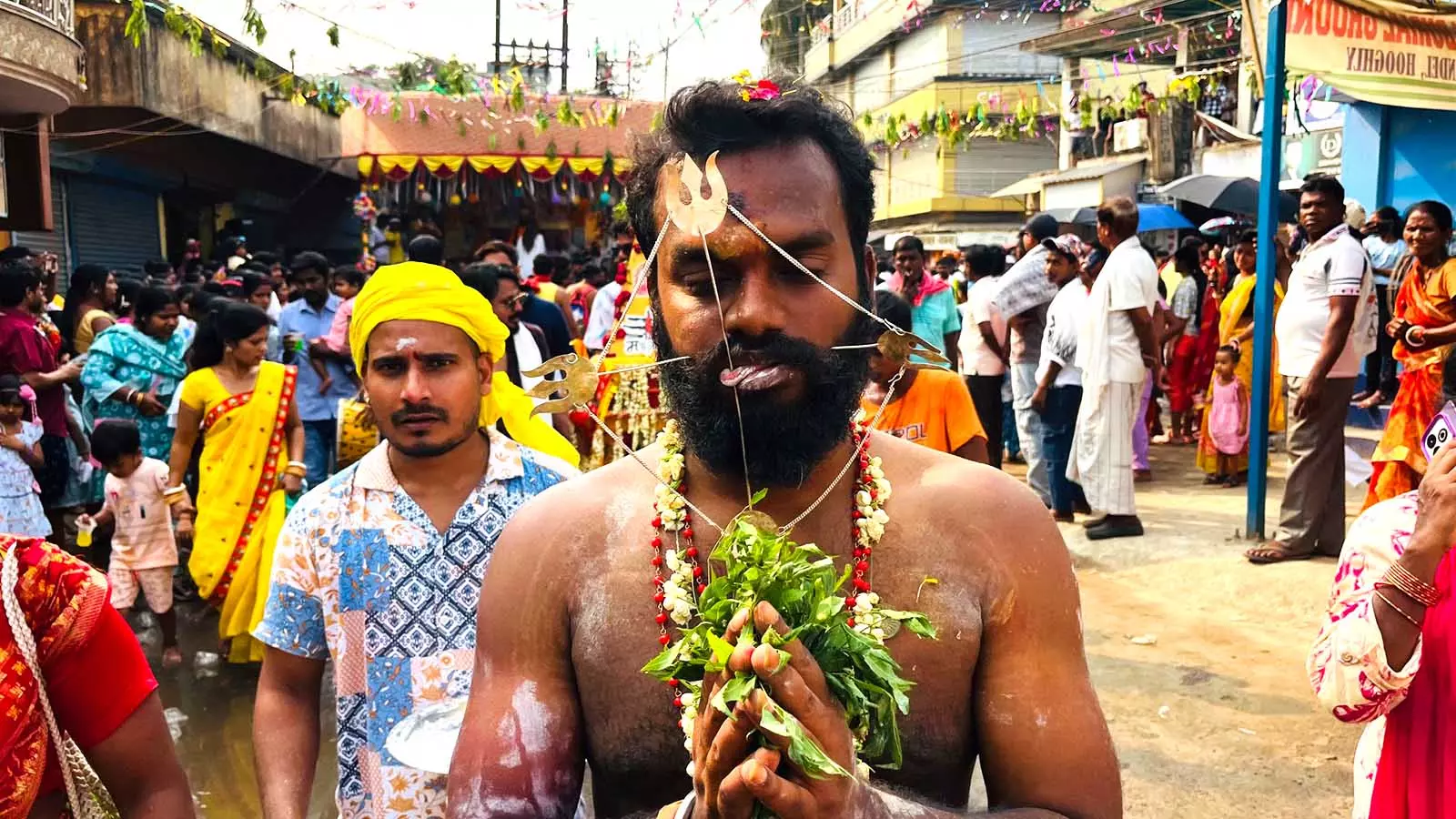
Sri Olaichandi Mata Thakurani is another Bengali folk deity considered as the goddess of cholera.
“Some Tamil residents of the town had a vision of Ma Sheetala, urging them to take her out from the packet of soil that Rathinam kept for treating people, and set-up a temple,” said Prabhat Gupta, general secretary of the Bharatiya Janata Yuva Morcha’s Hooghly district unit.
Thus, the Sheetala temple was established in Bandel’s Balikata locality. Rathinam became its first priest.
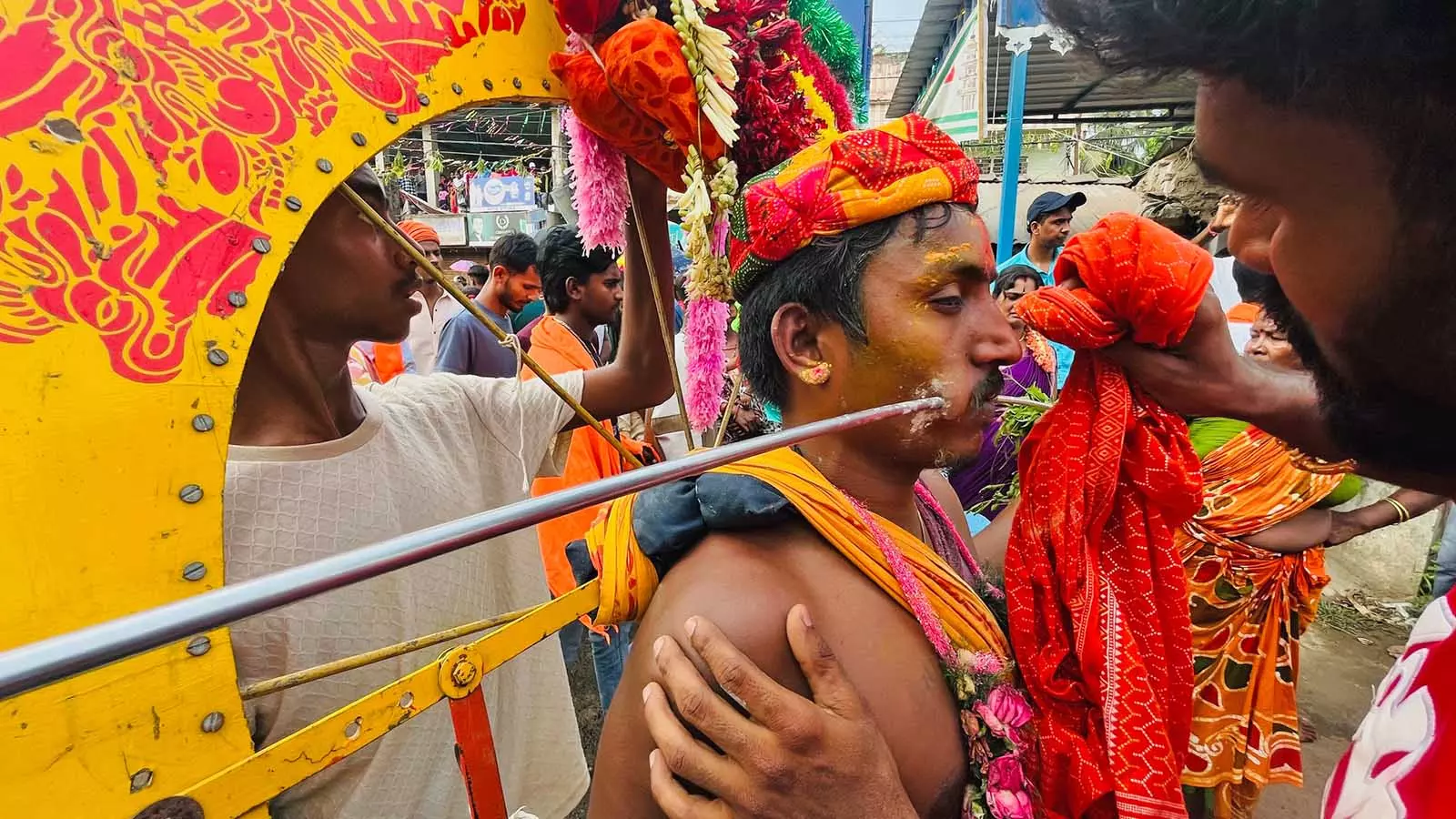
The Sheetala temple was established in Bandel’s Balikata locality after some locals had visions of the deity.
Sheetala is associated with pox and is considered both a bringer of illness and a healer, according to Hindu mythology.
The Tamil community of Bandel started celebrating Vel Vel festival centered around the Sheetala temple and Sri Olaichandi Mata Thakurani temple, another Bengali folk deity considered as the goddess of cholera.
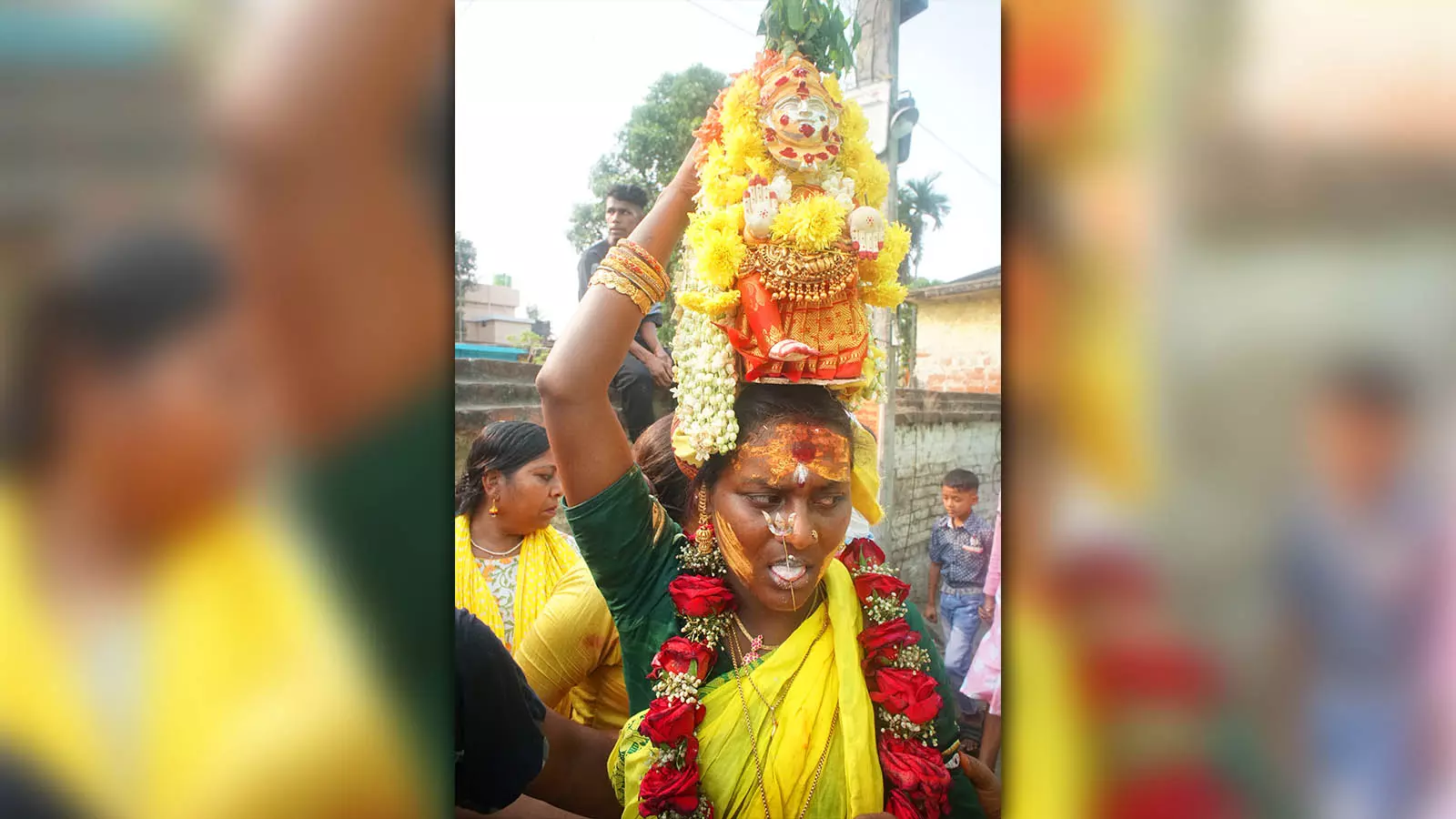
As part of the festival devotees undertake a religious procession from Olaichandi temple to Sheetala temple.
'Vel Vel' is a popular Tamil festival dedicated to Murugan. But in Bandel it is celebrated on Chaitra Navratri (generally falls on April 5 or 6) to worship Sheetala.
Devotees pierce their skin, tongue, or cheeks with vel (spears) as they undertake a religious procession from Olaichandi temple to Sheetala temple.
A huge fire pit is created near the Sheetala temple. The devotees walk barefoot over the fire pits filled with burning coal to complete the painstaking rituals.
“Traditional Tamil rituals associated with the Vel Vel festival are followed for the Sheetala puja,” said Ganesh, who now serves as a priest of the temple his father helped establish.
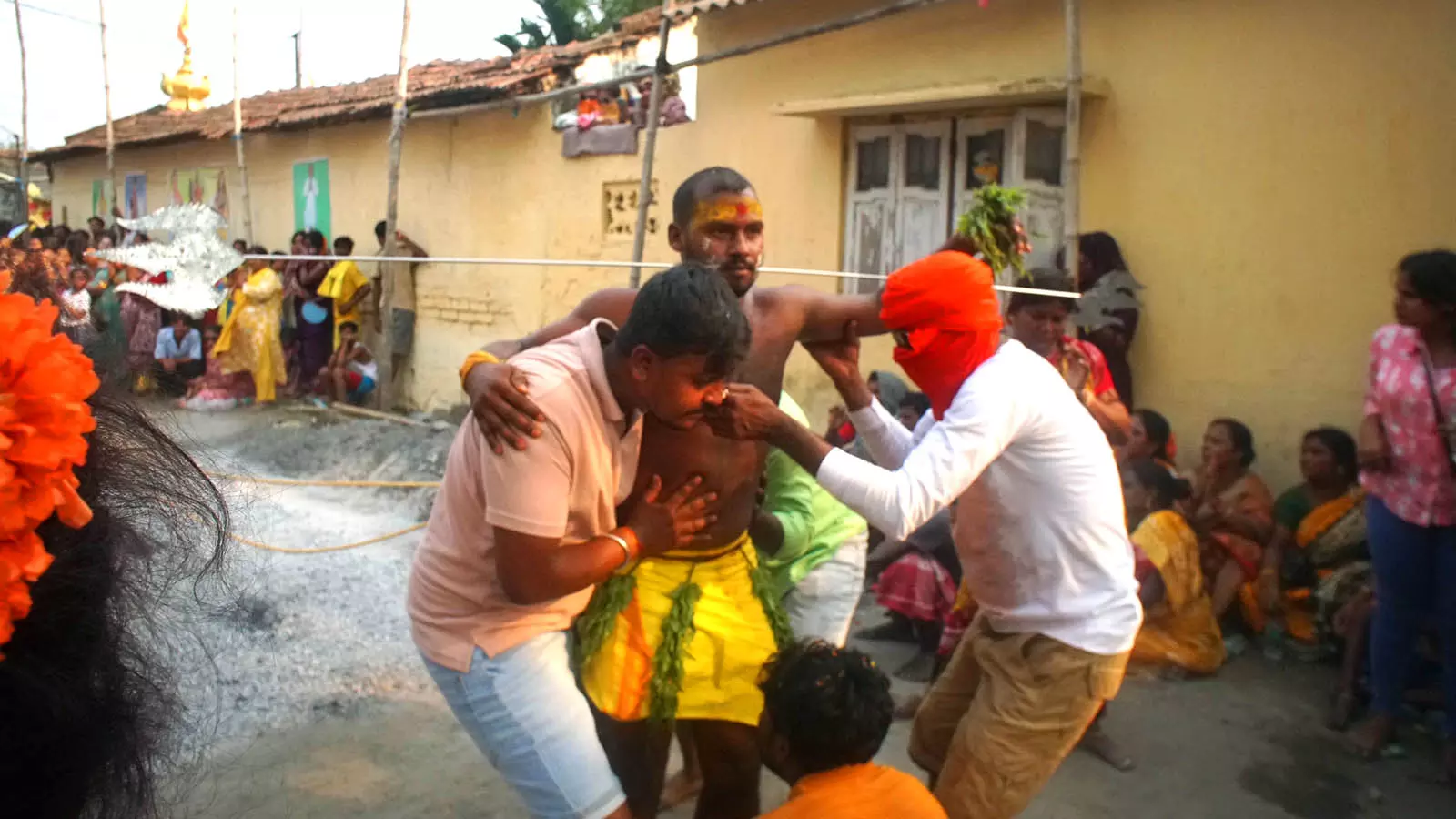
Traditional Tamil rituals associated with the Vel Vel festival are followed for the Sheetala puja.
Initially, only Tamil residents used to take part in the festival, Gupta said. But over the years it became a popular event in the city’s annual calendar. People from various parts of the state throng Bandel to witness the unique rituals associated with the celebration.
“Tamils, Bengalis, Hindi-speaking people all enthusiastically take part in the festival which has completed 51st anniversary this year,” said Gupta, who traced his ancestry to Madhya Pradesh.
Gupta was one of the devotees who walked over the fire pits during this year’s celebration on April 6.
Bandel has around 60 Tamil families now.
